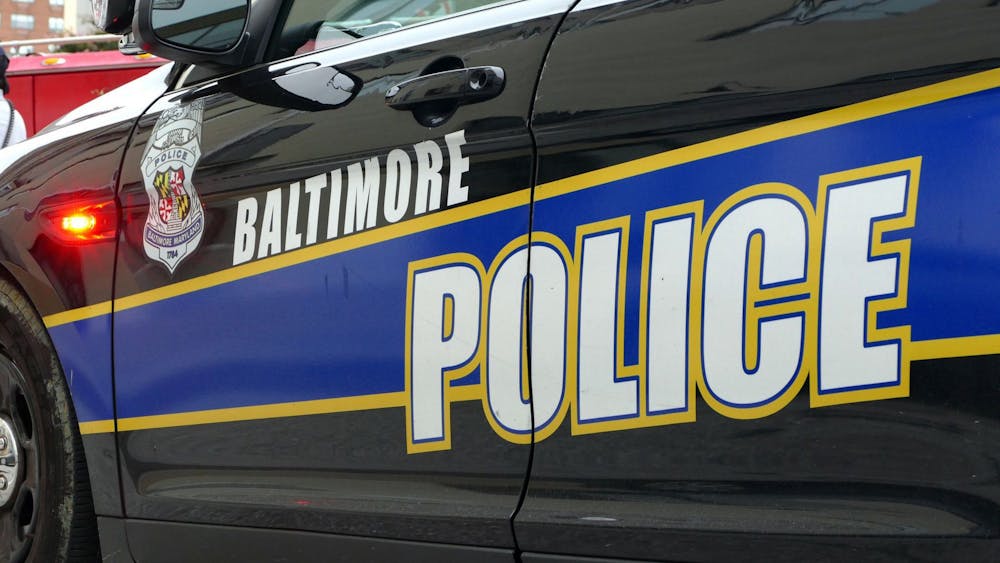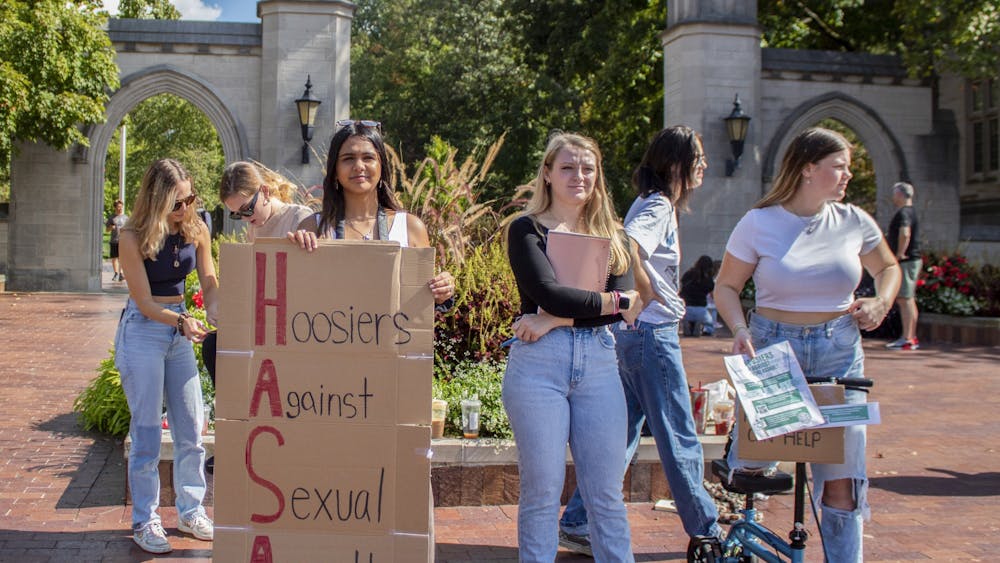Fifty-four years ago, the rowdy Cuban Blockade Protest rippled through IU. Today, campus is still alight with free speech and assembly.
At least four demonstrations, each unfolding relatively smoothly, have been logged in the first eight weeks of this semester.
In September, the Sample Gates saw a rally against the Dakota Access Pipeline and the beginning of Reinvest IU’s Hoosiers’ Climate March, which would conclude at Showalter Fountain.
In October, that same edge of campus heard megaphone-amplified demands for a New Campus Now and the early rumblings of a Black Lives Matter rally, which would flow through the streets of downtown Bloomington.
Groups of any sort have the right to demonstrate and march on campus — as long as those groups do so within guidelines.
According to the IU Code of Student Rights, Responsibilities and Conduct, students “may engage in peaceful and orderly protests, demonstrations, and picketing that do not disrupt functions of the university.”
Time, place and manner inform the level of disruption, as in any public space.
In the same vein, students must comply with federal, state and local laws.
“IUPD encourages political expression and people standing up for what they believe in,” IU Police Department Capt. Andy Stephenson said. “And we’ll help them do that safely.”
IUPD will monitor events to ensure the security of both protesters and counter-protesters, Stephenson said. Officers will even reroute traffic if necessary.
[Police, professors answer students' law enforcement questions | IDS]
That is, as long as the demonstration remains peaceful and minimally disruptive.
Stephenson said complications do not typically arise within the protesting group itself. More often, tempers boil over when counter-protesters provoke them.
This was the case in the October 1962 Cuban Blockade Protest, when fist fights broke out and the police arrested two people, as well as in March 2015.
For the latter, officers had to intervene in aggression between the Traditionalist Youth Network and those countering their protest of Tim Wise.
When IUPD must intervene in a protest, students can expect a reluctant use of force, exercised only if the physical safety of a civilian or the officer is immediately threatened.
If demonstrations move off campus, as they did in 2015 and 1962, IUPD officers only respond if the department with jurisdiction invites them.
Jurisdiction could move to the Bloomington Police station if a protest moves into the city, for example.
In that case, IUPD officers would operate according to the same general order that applies on campus.
According to IU code, if the University or IUPD has infringed on students’ rights to assemble peacefully, the students may file a request with Dean of Students Lori Reesor for an investigation.
“We’re not going to have a confrontation with protest groups,” Stephenson said. “We will go out of our way to protect their First Amendment rights.”





